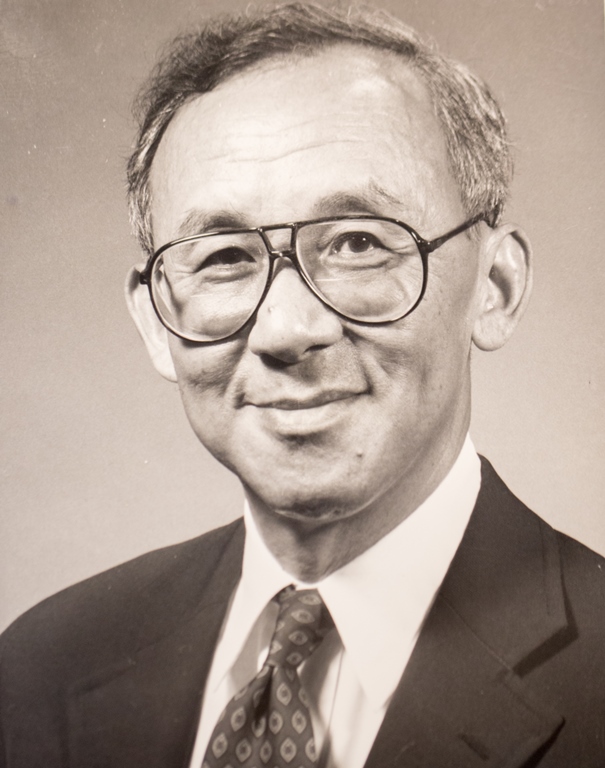In memoriam: Robert Wei, champion of interdisciplinary learning
Robert P. Wei, an expert in fracture mechanics who took the lead in creating Lehigh’s award-winning Integrated Product Design (IPD) program, died Sept. 28 at his home in Lower Nazareth Township. He was 84.
Wei joined the faculty in 1966 and rose to become chair of the department of mechanical engineering and mechanics and Paul B. Reinhold Professor.
In the early 1990s, Wei and several other mechanical engineering professors decided the engineering college needed to promote hands-on learning and group projects.
“We recognized that students today were more computer-literate than before, but less mechanically literate,” Wei said at the time, citing advances in technology. “In the old days, you could open the hood of a car and see the spark plugs, the carburetor and the engine. You could tweak things. Now, if you open the hood, you can barely find the oil dipstick.”
Acting on Wei’s recommendations, the engineering college launched the Freshman Design class, in which engineering students take apart and reassemble electromechanical devices and go on to design and make their own products.
In 1995, the mechanical engineering department established the yearlong IPD class, in which teams of students from engineering, business and the arts work with an industrial sponsor to design and make products and develop marketing plans for them.
“Bob started the IPD program with an industry workshop that resulted in an on-campus effort to improve engineering design in the undergraduate mechanical engineering curriculum,” says John Ochs, professor of mechanical engineering and mechanics, who has directed the IPD program since its inception.
“I recall Bob saying that he knew that the IPD program was important to the department, the college, the university, the region and the country.”
In 1996, the IPD program won the Curriculum Innovation Award from ASME (the American Society of Mechanical Engineers). In 2012, the National Academy of Engineering recognized the program as one of the nation’s best at providing students with real-world experiences. The program has also been praised by U.S. News & World Report and The New York Times.
In its first year, says Ochs, IPD enrolled a relative handful of students who completed three externally sponsored projects. Today, 235 students from eight majors are working on 25 IPD projects for 20 sponsors, including established companies, local start-ups and student start-ups.
Wei took a multidisciplinary approach in his teaching and research.
“Life is so complex that no one person can know everything,” he said. “So we integrate engineering design and engineering science throughout the mechanical engineering curriculum. Second—and this is the philosophical framework for IPD—we get engineering, architecture and business students to work together. If a product is not salable, the best design and best manufacturing won’t help.”
As a researcher, Wei worked with chemists and materials scientists to investigate the effects of the environment on the performance and durability of materials. His specific interest was the development and propagation of cracks in steel, especially in aging airplane frames. His research was supported by the National Science Foundation, the Office of Naval Research, the U.S. Department of Energy, NASA, the American Iron and Steel Institute, the Air Force Office of Scientific Research, and the Federal Aviation Administration.
“A problem like aging aircraft doesn’t lend itself to a single discipline,” Wei said. “When materials scientists create the alloy for the airplane, they know its strength and fracture properties, but not how it will hold up under certain environmental conditions. We’re trying to learn, through physical experiments, how a material will respond. We’re also trying to validate a model that we can use to predict how long a product will last.
“That’s very challenging because experts work in the short term, while applications must last for the long term. We expect an airplane to fly 20 to 30 years, an underground nuclear waste storage site to be trouble-free for 300 years, and a bridge to stand forever. But how much time do we spend acquiring data? Usually between one month and two years.”
In 1996, Wei and his wife, Lee Wei, established the H.R. and Y.B. Liu Wei Prize, in honor of his parents. The prize is granted to junior mechanical engineering majors for academic achievement and leadership.
Wei was born in Nanjing, China, in 1931 and immigrated to the United States in 1947. He received the B.S., M.S. and Ph.D. from Princeton University and worked at the U.S. Steel Research Center in Monroeville, Pennsylvania, before coming to Lehigh.
He was a member of First Presbyterian Church in Bethlehem, where he sang in the choir for more than 25 years.
Wei is survived by his wife; two sons, Bill and Tim, and their wives, Ida and Sally; and two grandchildren.
A memorial service will be held at 11 a.m. on Saturday, Oct. 24, at First Presbyterian Church. Donations may be made to Alzheimer’s Disease Research in Clarksburg, Maryland.
Posted on:


